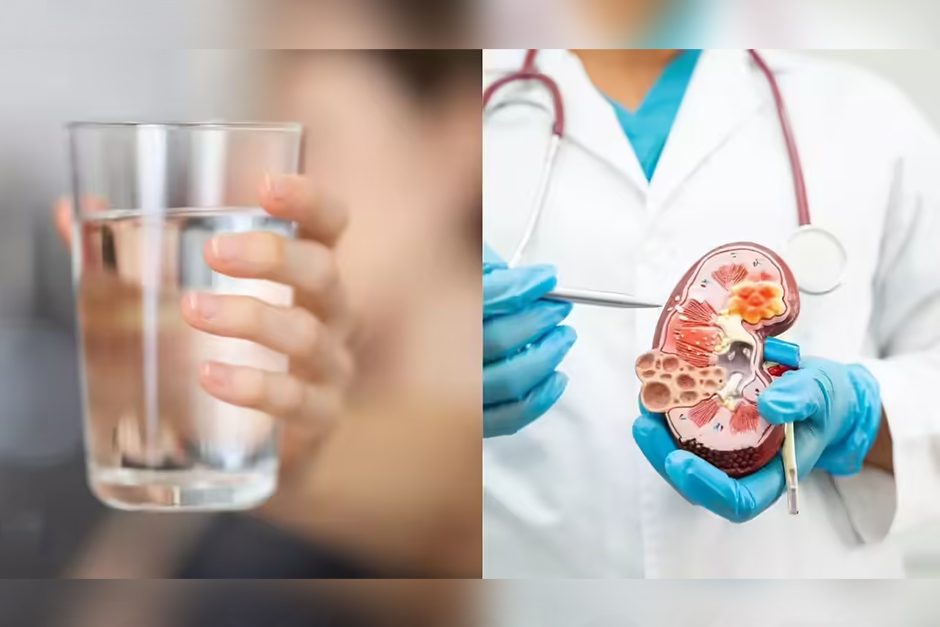In India, where traditional wisdom often intertwines with modern health practices, the advice to ‘drink more water’ for good health is almost universal. It’s a common belief that ample hydration is the ultimate elixir, especially for our kidneys – the tireless filters of our body. Many assume that the more water they consume, the better they protect these vital organs from damage and disease. But is this widespread notion entirely accurate? Can simply drinking ‘more water’ truly safeguard your kidneys, or is there a more nuanced, perhaps even surprising, truth about hydration and chronic kidney disease (CKD)?
The reality is more complex than a simple ‘more is better’ adage. While adequate hydration is undoubtedly crucial for overall health, including kidney function, an excessive intake can sometimes be ineffective or, in specific circumstances, even detrimental. Understanding this delicate balance is key, especially given the rising prevalence of chronic kidney disease in India.
The General Wisdom: Hydration for Healthy Kidneys
For individuals with healthy kidneys, maintaining good hydration is indeed fundamental. Water helps the kidneys flush out waste products, toxins, and excess minerals from the blood, which are then excreted as urine. It supports the optimal blood pressure and volume necessary for the kidneys to perform their filtration tasks efficiently. Moreover, sufficient fluid intake is often recommended to prevent the formation of kidney stones, as it helps dilute stone-forming substances in the urine.
Common guidelines, like drinking 8-10 glasses of water daily, serve as a general benchmark for healthy individuals. However, the exact amount can vary significantly based on factors like climate, activity level, diet, and individual physiological needs. Listening to your body’s thirst signals and observing the colour of your urine (pale yellow being ideal) are often more reliable indicators than adhering strictly to a fixed volume. The goal for healthy kidneys is adequate hydration, not necessarily excessive.
Chronic Kidney Disease (CKD): A Different Hydration Paradigm
Herein lies the crucial ‘surprising truth.’ For individuals living with chronic kidney disease, the dynamic of hydration changes dramatically. As kidneys progressively lose their ability to filter waste and regulate fluid balance, they struggle to excrete excess water from the body. In such cases, consuming ‘more water’ than recommended by a physician can lead to serious complications, including:
- Fluid Overload: This can manifest as swelling (edema) in the legs, ankles, and face.
- Shortness of Breath: Excess fluid can accumulate in the lungs, leading to pulmonary edema, a potentially life-threatening condition.
- Increased Blood Pressure: Fluid overload can worsen hypertension, a major risk factor and accelerator of CKD progression.
- Increased Strain on the Heart: The heart has to work harder to pump blood through an overloaded circulatory system, potentially leading to heart failure.
Therefore, for CKD patients, fluid intake needs to be carefully monitored and often restricted based on the stage of their kidney disease, their urine output, and other medical conditions. This personalized approach is paramount. Dr. Aparna Sharma, a leading nephrologist in Delhi, emphasizes,
“For patients with advanced CKD, uncontrolled fluid intake can be more harmful than beneficial. Their kidneys simply lack the capacity to process it. It’s imperative that they follow a fluid restriction plan tailored by their doctor, which often includes not just water, but all fluid-containing foods and beverages.”
This highlights the critical distinction: what’s good for healthy kidneys can be detrimental for compromised ones.
Debunking Myths and Best Practices
Several myths persist regarding water intake and kidney health:
- Myth: Water ‘cleanses’ the kidneys. Truth: Kidneys are self-filtering organs. While water facilitates their filtration process and waste transport, it doesn’t actively ‘cleanse’ them in a scrubbing sense.
- Myth: Always drink 8 glasses, even if not thirsty. Truth: Thirst is your body’s natural indicator. For most healthy people, drinking when thirsty is sufficient. Over-hydration can, in rare cases, lead to hyponatremia (dangerously low sodium levels).
For optimal kidney health, beyond just water intake, focus on a holistic approach:
- Manage underlying conditions: Diabetes and hypertension are the two leading causes of CKD in India. Strict management of these conditions is crucial.
- Healthy Diet: A balanced diet low in processed foods, excessive salt, and sugar supports kidney function.
- Regular Check-ups: Especially if you have risk factors for CKD (family history, diabetes, hypertension), regular screening can detect problems early.
- Avoid Self-Medication: Many over-the-counter drugs, especially NSAIDs, can harm kidneys if used excessively.
The relationship between water intake and kidney health is intricate and highly individualized. For healthy individuals, adequate hydration is a cornerstone of well-being. However, for those with chronic kidney disease, the prescription for fluid intake turns on its head, demanding careful restriction under medical guidance. The surprising truth is that while water is life, for compromised kidneys, ‘more’ isn’t always ‘better’; sometimes, it can be quite the opposite. Always consult a healthcare professional for personalized advice regarding your hydration needs, especially if you have existing health conditions.
—




